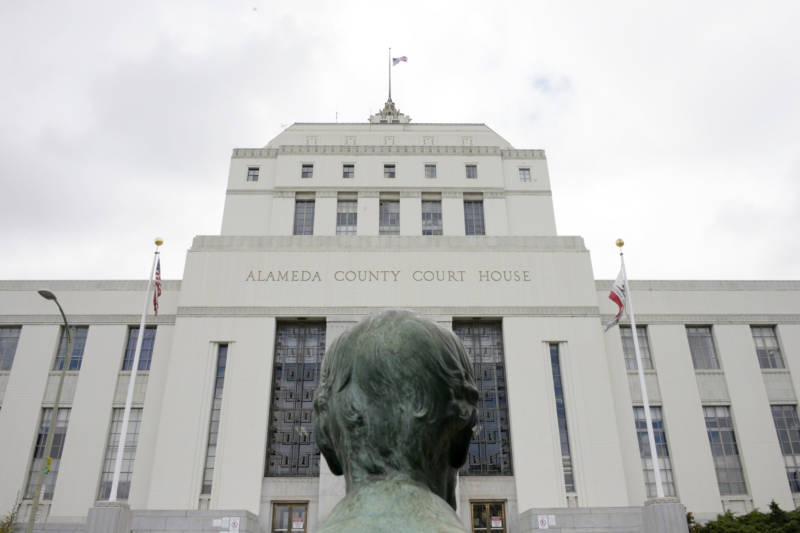The day's testimonies began dramatically with Carol Cidlik, mother of one of the victims. She cried as she identified a photo of her daughter, Nicole Siegrist, also nicknamed Denalda. She said she received texts throughout the day her daughter died.
James, the prosecutor, showed texts between the two, a final one from Siegrist that read, "I'm gonna die now." The defense had objected to the testimony before the jury was called to the courtroom, calling the text "inflammatory" and that it was "tugging at the heartstrings."
Defense attorney Tyler Smith, who represents Harris, said the "true reason is to appeal to the emotions of the jurors."
Judge Trina Thompson allowed testimony from Cidlik if it referred specifically to the time and location from where the text was sent.
Cidlik, who lives in Hawaii, said she had received the final text at 11:23 p.m. California time, the time at which the fire had broken out. Defense attorneys did not cross-examine Cidlik.
Elizabeth Mazzola, who lived at the Ghost Ship for about a month and escaped the night of the fire, was the final witness Monday and answered questions from James regarding the state of the warehouse.
Mazzola, who was subletting a living space on the first floor, said she saw a wall of flame as the fire broke out, and said she couldn’t recall any sprinklers, smoke detectors or emergency lights as she fled out the main pathway and out the front door of the warehouse. She said she wasn’t sure if she saw exit signs.
James also asked if she had seen any strangers in the area where the fire broke out to which she answered, “there was no one back there.”
The defense has argued, in a relatively new theory, that the warehouse was a target of arson and that no amount of safety measures could have prevented the fire. The defense said in opening statements last week that at least three witnesses will testify they saw strangers near the ignition point of the fire, heard a scuffle or fight and heard bottles popping. They said witnesses will testify that several people fled from the building through a side door just before the fire started.
Smith, the defense attorney, asked if Mazzola had only observed the area immediately after the fire started, not before. Mazzola said that was correct.

